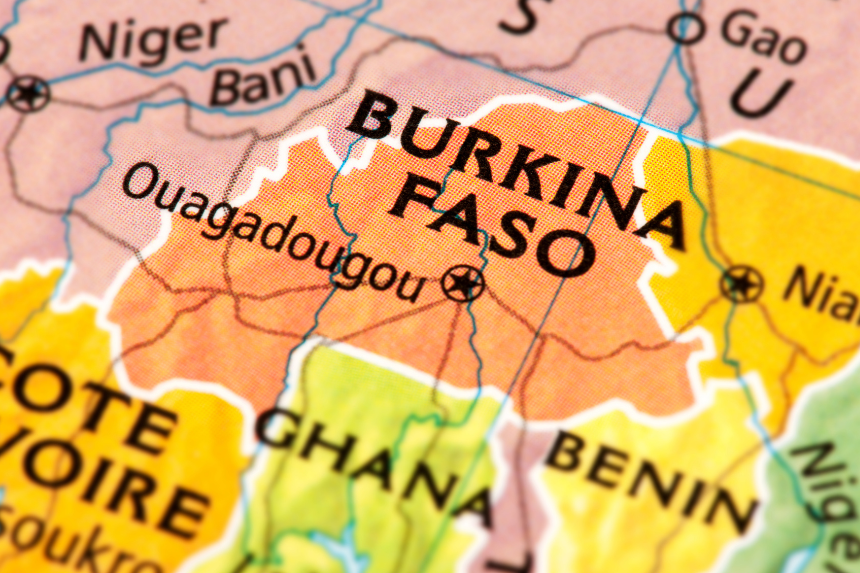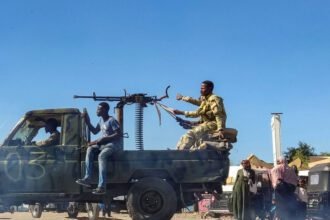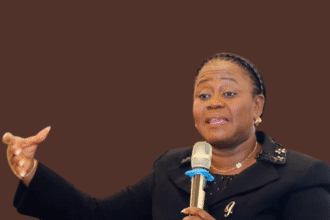In response to a contentious report on child rights, the Burkina Faso junta has ejected the top UN representative from the nation. Because she participated in a publication that documented child abuse during the ongoing struggle with jihadist organisations, UN Resident Coordinator Carol Flore-Smereczniak was expelled.
Incidents spanning two years are covered in the March report. It describes more than 2,000 incidents of child enlistment, murder, sexual assault, and other mistreatment that include government troops, civilian militias, and armed Islamist organisations.
The results were condemned by Captain Ibrahim Traoré’s military-led government of Burkina Faso. The UN was charged with making “unverified allegations” without any substantiating legal proof and with failing to contact national authorities.
What Highlighted the Report?
Serious abuses of children’s rights were highlighted in the UN-backed report. Thousands of examples of children being abused, killed, or used as fighters during violent conflicts were documented.
Crucially, state-aligned forces as well as extremist organisations associated with al-Qaeda and ISIS were held accountable. These comprised components of local defence units and the Burkinabé military. But the administration spoke to its soldiers as “valiant fighters” and denied that they had committed any misconduct. Here is the link to our article on Education Cuts Impact.
How Does Carol Flore-Smereczniak Get Here?
Mauritius diplomat Flore-Smereczniak began work in July 2024. With positions in Chad, Malawi, and Côte d’Ivoire, she has more than 20 years of experience working in conflict and post-conflict areas.
She is removed in a predictable way. The junta ousted her predecessor in December 2022, not long after the public criticised the effects of violence on health and education institutions.
Similar justifications were given this time by the Burkina Faso junta, which claimed that the most recent report was based on external narratives and did not accurately represent national realities.
Have We Heard from the UN?
Although the UN has not yet made an official statement regarding Flore-Smereczniak’s expulsion, the international organisation has before voiced regret for similar diplomatic occurrences. The UN has reaffirmed its commitment to continue its development and humanitarian work on behalf of the Burkina Faso people.
The UN is still working to solve the escalating humanitarian situation brought on by years of violence and displacement, despite tensions. Here is the link to our article on Children Heal War.
What Changes Have Been Made to the Security Situation?
Burkina Faso has been dealing with a growing terrorist insurgency since 2015. Over two million people have been displaced, and many have died as a result of the fighting.
The jihadist organisation JNIM claimed responsibility for more than 280 attacks in the first half of 2025 alone, which is twice as many as were reported in the same period in 2024.
The Burkina Faso regime has responded by turning to Russia for military assistance and separating from its erstwhile colonial partner, France. Rights groups allege continued restrictions on press freedom, repression of dissent, and civilian casualties in spite of these efforts.
What Does the Nation’s Leadership Have in Store?
The military administration continued its transitional control for a further five years in 2024. Captain Traoré’s eligibility to run for president in the 2029 elections was also established.
Traoré has been portrayed as a pan-Africanist who has worked to resist Western influence and reshape Burkina Faso’s alliances. Critics counter that neither the security nor the human rights conditions have improved under his leadership.
Final Thoughts
A key development in Burkina Faso’s international relations is the removal of the UN coordinator, highlighting the Burkina Faso junta’s growing isolation amid escalating violence. As humanitarian needs rise, effective communication and access become increasingly urgent. Disputes over reports like the one on child rights reveal deep divides in how the conflict is portrayed and who controls the narrative. Despite these tensions, protecting civilians and children remains a shared priority across all sides.








